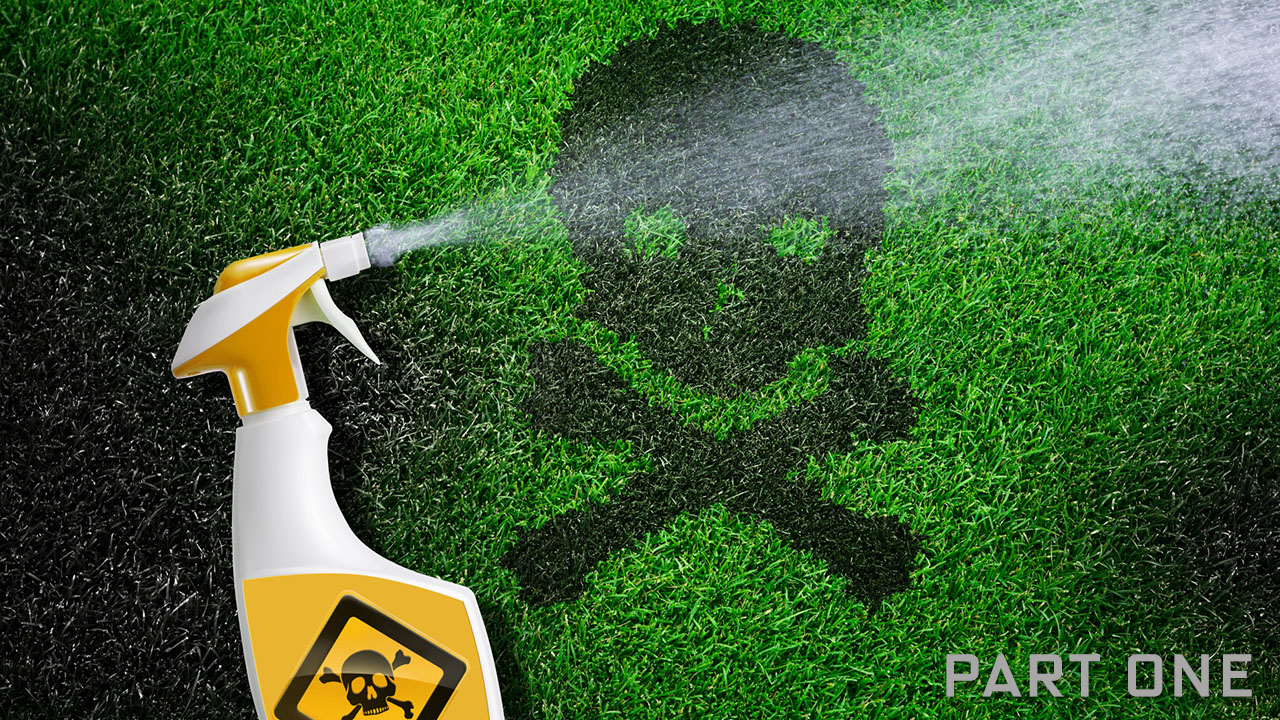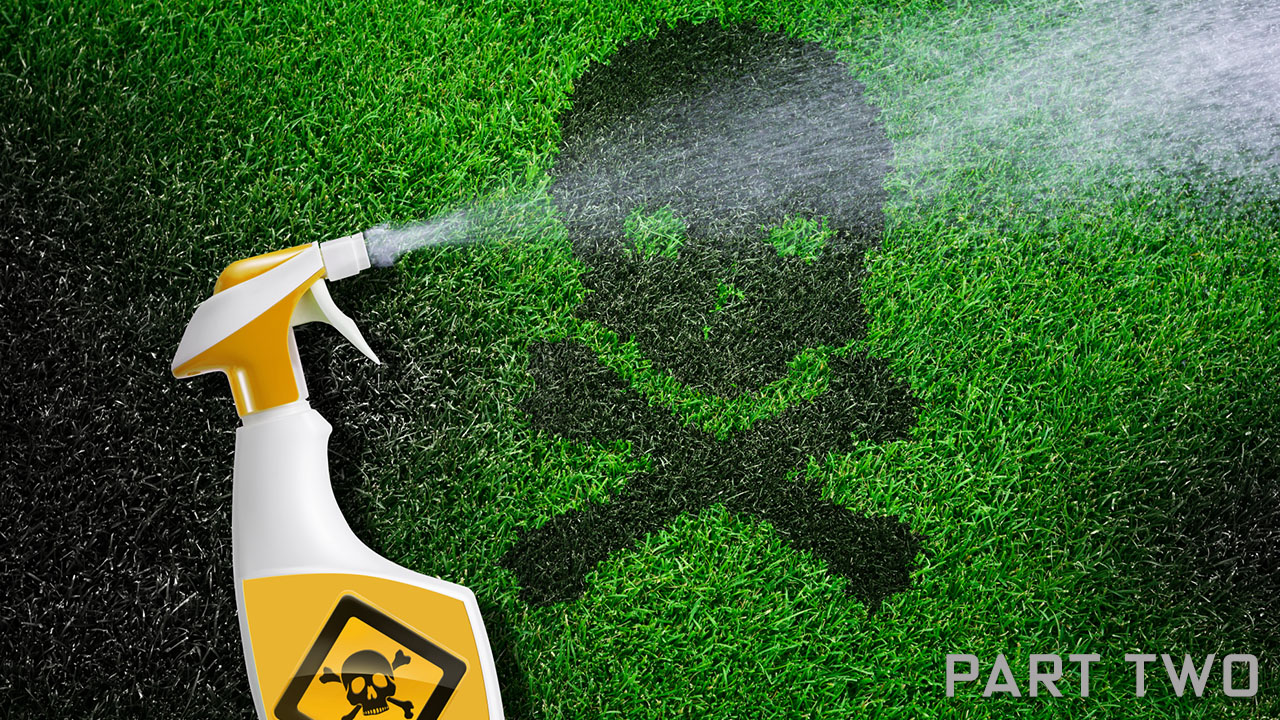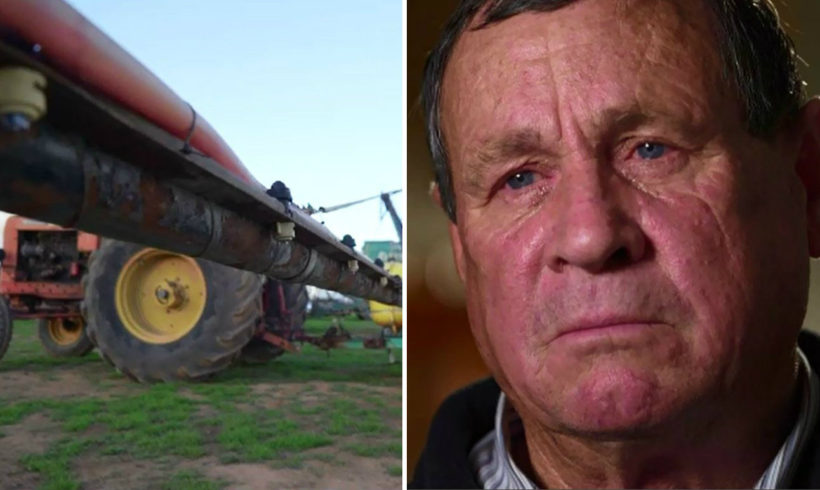A second Australian farmer has launched legal action against chemical manufacturer Monsanto, alleging prolonged use of their Roundup product is linked to his non-Hodgkin’s lymphoma.
Ross Wild, 67, said he used the herbicide extensively on his New South Wales farm since 1967. He was diagnosed with non-Hodgkin’s lymphoma last year.
Mr Wild’s action 54-year-old Michael Ogalirolo, a fellow farmer who filed a writ to sue Monsanto for health damages in June.
The legal action by local farmers comes in the wake of a $112 million payout awarded to a Californian man in March, after a US jury found that the ingredient “glyphosate” contributed to his non-Hodgkin’s lymphoma.
A recent 60 Minutes investigation uncovered that while Roundup’s container warns users to “avoid contact with the eyes and wash hands after use”, it doesn’t tell consumers that the manufacturer actually recommends users don full respiratory protection.
Mr Wild is being represented by Tony Carbone of Carbone Lawyers in Melbourne – the same man representing Mr Ogalirolo – who told 9news.com.au that the precedent set in US courts could be key.
“I’ve been in touch with the same doctors who were involved in the states and they’ve supported our clients,” said Mr Carbone.

“Independent doctors have assessed these two clients and they’ve said as far as we’re concerned, the exposure to Roundup products has either caused or conflicted upon their non-Hodgkins’ lymphomas”.
Bayer Australia, who owns Roundup manufacturer Monsanto, said in a statement it was aware of a second claim but had not received any formalities at this stage.
“Bayer Australia is aware of media reports regarding a second Statement of Claim about glyphosate but has not received a writ at this time,” a spokesperson for the company said.
“We have great sympathy for any individual with cancer, but the extensive body of science on glyphosate-based herbicides over four decades supports the conclusion that Roundup does not cause Non-Hodgkin’s Lymphoma (NHL).
“Glyphosate has been extensively studied globally by scientists and regulators, and results from this research confirm it is not carcinogenic.

“We firmly stand behind the safety of glyphosate-based products, and as a company devoted to life sciences, assure Australians that their health and the environment are our top priority.”
Ross Wild had repeated and extensive exposure to Roundup products without being aware of any potentially damaging side-effects, Mr Carbone claimed.
“Ross has had extensive exposure to the products since 1976,” said Mr Carbone.
“He’s said that if the warnings were there, he probably would have used the product more diligently.
“At the time he understood the product to be more safe than table salt, so when the wind was blowing and he was getting it on his face and clothes he didn’t worry about because the bottle didn’t say it was poisonous.”
Mr Wild is suing for damages for the cost of medical treatment, pain and suffering, loss of income and gratuitous services.
Cancer council calls for review into Roundup use in Australia
Writs for both Mr Wild’s and Mr Ogalirolo have been served to the Victorian Supreme Court.
In 2018, Australia’s peak cancer body, Cancer Council Australia, called for a formal review into glyphosate, the active ingredient used in Roundup.
In June this year, Professor Sanchia Aranda, CEO, Cancer Council Australia warned against using any product with glyphosate without proper protection.
“The International Agency for Research on Cancer (IARC) has classified glyphosate as a probable carcinogen. The main cancer type associated with use was non-Hodgkin’s lymphoma,” said Aranda. “People should avoid the use of the product if it’s not necessary and those who do need to work with it should take proper health and safety precautions.”
Not all parties share the same concern over the use of Roundup, and it’s active ingredient.

According to a fact sheet distributed by the National Farmer’s Federation in Australia, the evidence supporting glyphosate’s safety is “clear and overwhelming”.
“In the past three years alone, regulatory authorities in the European Union, South Korea, Japan, Australia, New Zealand, Canada and the United States have publicly reaffirmed that exposure to glyphosate does not cause cancer,” the NFF statement reads.
“More than 800 scientific studies and reviews, including numerous independent regulatory safety assessments, affirm that glyphosate is safe and does not cause cancer.”
Mr Carbone believes the latest legal action could spark a flurry of movement from more farmers.
“We’ve got a lot of farmers who still use the product,” said Mr Carbone.
“The ones that are really heavily at risk are the ones who use it on a regular basis, and they haven’t taken proper precautions such as gloves and face masks.”
9news.com.au has contacted the National Farmer’s Federation for comment.

